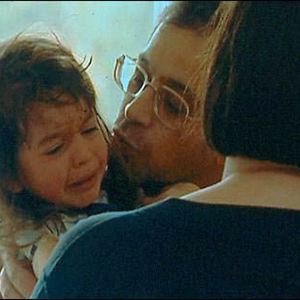They never talk to each other. Most of the time they sit in separate rooms. If they are in the same room, they seldom look at each other. They prefer not to. If they talk to each other it is more like an argument. It was not always like that. They used to be married but something went wrong. Now they are divorced. Their children run from one room to the other. They had to go to court to settle how the children can see the parent with whom they are not living. The authorities have decided that the place could be Aadef Médiation, an institution on neutral ground where couples can meet with the help of social workers.

Of course we are aware of them, but we seldom get such a strong (and sad) demonstration of the fantastic results our modern civilisation has achieved! This fly-on-the-wall style documentation is shot in France, but could be from any society that believes problems can be and should be solved by the authorities. The film’s strength is that it catches all the small details which, put together, give you a broader picture of a problem. The film crew has obviously spent a long time at the institution and has succeeded in pointing out some interesting characters to which we return again and again. But it is not a film about individuals, it is about a system: we don’t get to know what the parents are doing when they leave the Centre.
Most of the people who turn up are immigrants. If they maintain more conservative gender roles their problems are increased. The losers are the men. The court only grants them visiting rights. They are the ones who suffer, as a woman remarks to a man who is waiting to see his child. Maybe it is just for a couple of hours every second week…

Love and Hate. An angry father waits at the window dressed in his best suit. His ex-wife is expected to turn up with their child. It is his turn today but she does not show up. She has talked about going abroad on holiday with the child. He has warned her: “I´ll go to Court, I´ll fight for my child, a father has the right to see his child!”
Whether this way of handling family problems is the right one is not debated. It seems to function all right and the social workers are doing their best in this game of ”Monsieur Contre Madame.” Quite a job it is saying to the real losers, the children, “A kiss is not enough. It´s his turn today”!
Observational documentary cinema is still a brilliant way of getting to know the world we live in. Thank you Claudine Bories, for treating the characters with respect and the audience intelligently!


